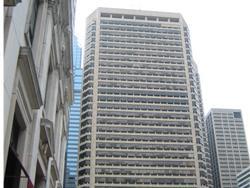Hybrid Work Continues to Change the Corporate Workspace
Washington, DC, February 22, 2023-The pandemic and hybrid work scenarios resulting from it have changed the corporate office landscape in multiple ways, reports the Wall Street Journal.
“Workplaces that look like your living room; flexible, multiuse spaces; outdoor terraces. Today’s new hybrid work styles are reshaping the office buildings of tomorrow.
“Leading architects and real-estate developers are pioneering concepts aimed at workers who are splitting their time between home and office, and they predict these innovations will become mainstream in the years to come.
“The rethinking of office design comes as the return of employees to office buildings remains sluggish, reflecting new remote and hybrid workplace strategies. Workers’ office use on average is around 50% of prepandemic levels in ten major U.S. cities monitored by Kastle Systems, which tracks security swipes into buildings. Employee engagement-a measure of how involved and enthusiastic workers are about their work and workplace-slipped in 2022 for a second consecutive year, according to a survey Gallup released in January.
“Making the office a destination, with coordinated on-site days for collaboration, could go a long way in making workers feel more engaged, says Jim Harter, chief scientist for the workplace management practice at Gallup.
“Architects are increasing access to the outdoors, even in skyscrapers. More office buildings will include “touchdown” spots where visiting employees can log in and work, says Annie Draper, a director who specializes in flexible office spaces at Hines, a global real-estate developer based in Houston. At Deutsche Bank’s new Americas headquarters in New York City, designed by architecture giant Gensler, trading floors include lockers for hybrid employees, to help avoid lugging equipment back and forth.”
At the same time, with fewer employees in the office at once, the need for square footage has declined, and that is creating challenges for landlords.
“The number of big office landlords defaulting on their loans is on the rise, fresh evidence that more developers believe that remote and hybrid work habits have permanently impaired the office market.
“The giant investment manager Brookfield Asset Management recently defaulted on a total of over $750 million in debt for a pair of 52-story towers in Los Angeles, according to a February securities filing. Real-estate firm RXR is in talks with creditors to restructure debt on 61 Broadway, a 34-story tower in Manhattan’s financial district, according to people familiar with the matter. Handing over the building to the lender is among the options under consideration, these people said.
“In another sign of distress, a venture of an investment manager affiliated with Related Cos. and BentallGreenOak is in similar debt-restructuring talks over a $150 million warehouse-to-office conversion project in Long Island City, N.Y., that hasn’t filled up as much space as expected, according to people familiar with the matter.
“Five to ten office towers each month join the list of properties at risk of defaulting because of low occupancy, expiring leases or maturing debt that would have to be refinanced at a higher rate, according to Manus Clancy, senior managing director with data firm Trepp Inc.
“Concerns over the health of the office building industry have mounted throughout the pandemic. The weak return-to-office rate has led to soaring vacancy levels in many cities. Last year’s spike in interest rates increased the cost of buying and refinancing properties and squeezed property values.
“Until now, most landlords have been able to stay current on their mortgages because office leases typically run for ten years or more and lenders have been willing to extend expiring mortgages.”
